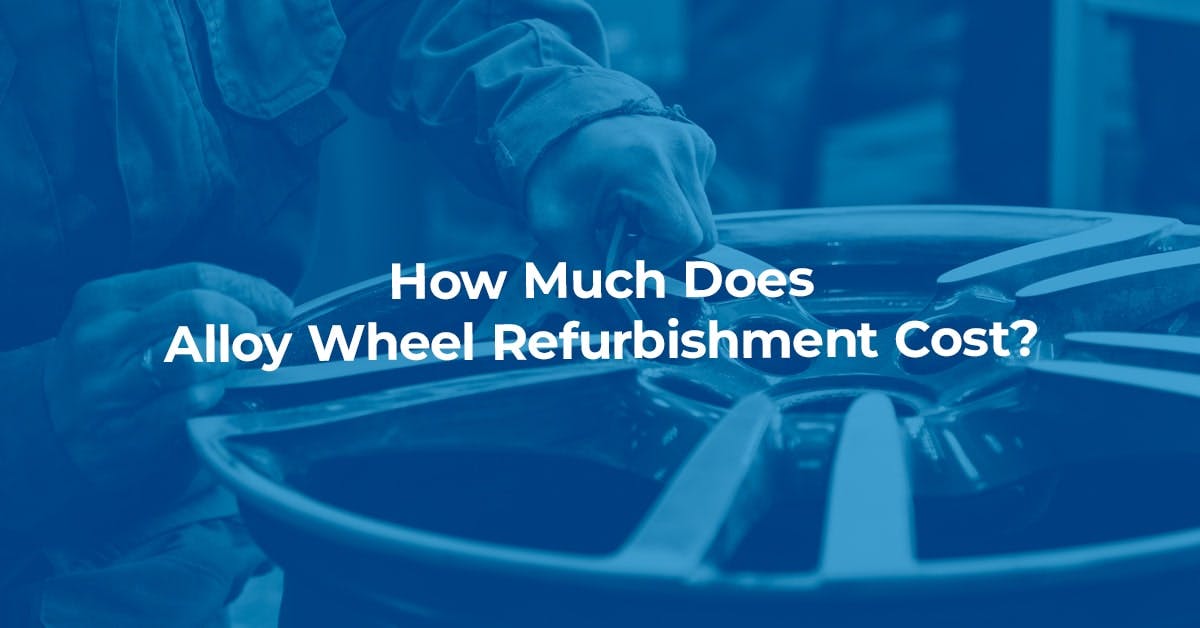Even the best drivers make the simple mistake of damaging their wheels – sometimes it happens through no fault of our own.
Read on and find out how much alloy wheel refurbishment costs, how they are refurbished and what causes alloy damage.
Page Contents
How Much Does It Cost to Refurbish Alloy Wheels (UK)?
Refurbishing alloy wheels can cost anywhere from roughly £60 to £130 per wheel, depending on factors like the size and finish.*
This cost may or may not include the price of having the alloy wheels refitted, so you should check this with the garage.
You can choose to have a single wheel refurbished, or all four at the same time.
Having all four refurbished at the same time can often be cheaper than having the wheels refurbished separately.
Having your alloy wheels refurbished can increase your car's value, and improve its safety and handling.
*Based on data taken from Bumper
How Are Alloy Wheels Refurbished?
To refurbish alloy wheels, the tyres will first be removed from the wheels.
They are then stripped of their existing finish, making it easier for a technician to determine the extent of the damage.
If the wheel only has a few scuffs or scratches, then it can be refurbished with a simple sanding of the outer layer.
If the damage is more serious, a filler will be applied and sanded down so it is flush with the rest of the wheel.
When the damage has been repaired, a new metallic paint finish can be applied to the wheel.
Once this has dried, a lacquer coat will be applied and then the wheel can be cured and polished.
What Are Alloy Wheels?
Alloy wheels are the rims that hold your tyres to your vehicle.
They are made of a mixture of metal, usually aluminium or magnesium.
They tend to be pressed as single-piece units in unique shapes, unlike cheaper steel wheels which are normally in a simple circular pattern.
Alloy wheels are also lighter than traditional steel wheels, and tend to offer better braking performance.
Diamond-cut alloy wheels are another type of alloy wheel finish.
What Causes Alloy Wheel Damage?
There are several different ways your alloys can be damaged, including the following:
- Hitting the curb
- Hitting a pothole
- Debris from the road
- Using the wrong cleaner
If you hit your alloy wheels on a curb whilst parking or drive over a pothole, then you could increase the need for wheel alignment.
Whilst any small scratches may constitute cosmetic damage more than anything else, repetitive damage to your alloys could lead to cracks, bends and breakage.
Common Alloy Wheel Damage
Your vehicle may suffer from the following forms of alloy wheel damage:
- Pothole damage
- Alloy corrosion
- Cracked alloy wheel
- Curbed alloy wheel
- Bent alloy wheel
- Scratches and dents
- Straightening alloys
Can You Refurbish Your Alloys at Home?
Whilst you can refurbish your alloys at home - provided you have the right tools and equipment - this is not a short or easy process.
If you don't do the job right, it could end up costing you more than it would have if you'd just booked with a professional mechanic.
To refurbish your alloy wheels, you must first clean the wheels by removing any dust and dirt.
You will then have to take the wheels off.
Lay the wheels down with the damage facing up, and wear gloves as you carefully use a paint stripper to remove the finish.
Using a suitable alloy wheel filler, fill in any chips, dents or scratches.
Let the filler dry completely before sanding the repaired areas until smooth.








2 replies to "How Much Does Alloy Wheel Refurbishment Cost? (UK)"
Andrew Bond
October 1st, 2024
Eve McPherson
October 2nd, 2024
Leave a comment